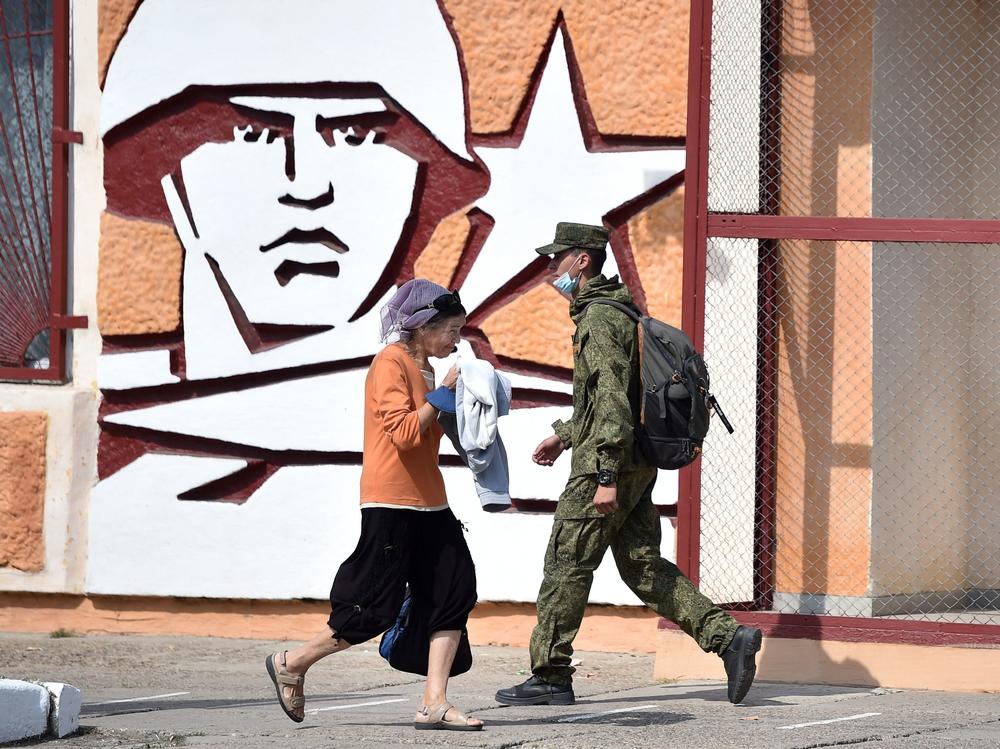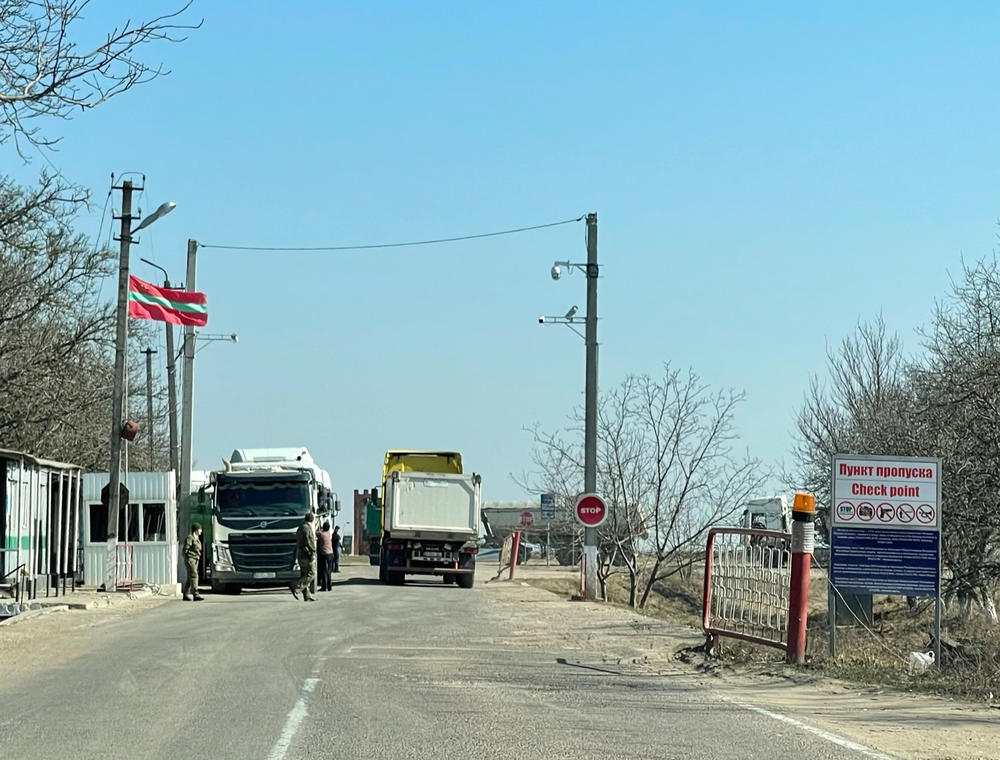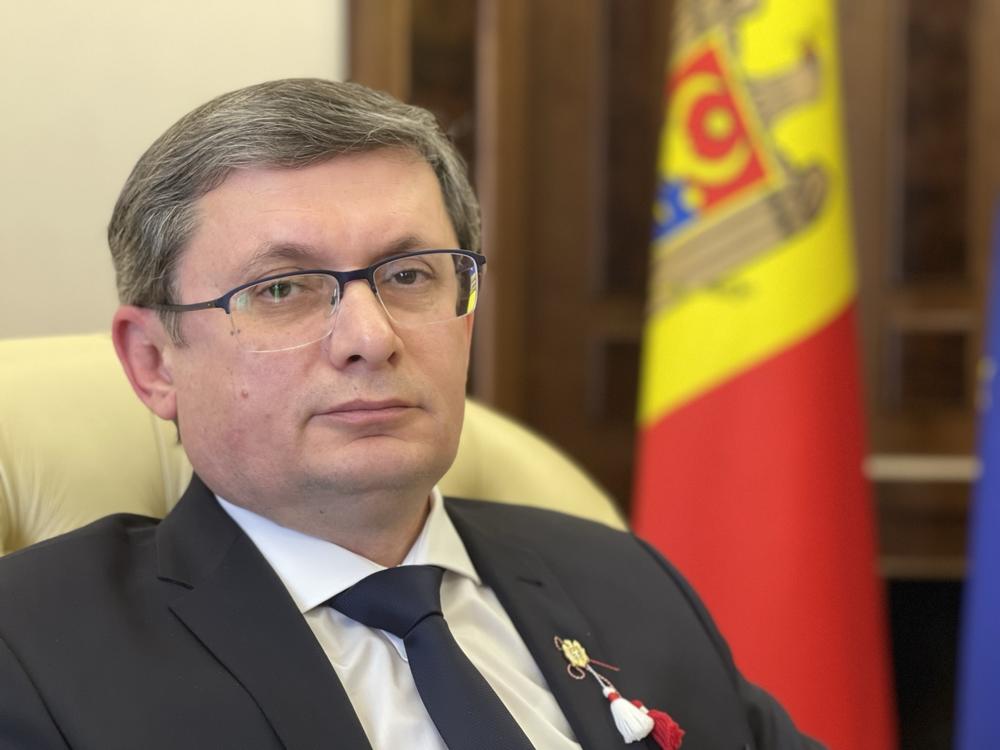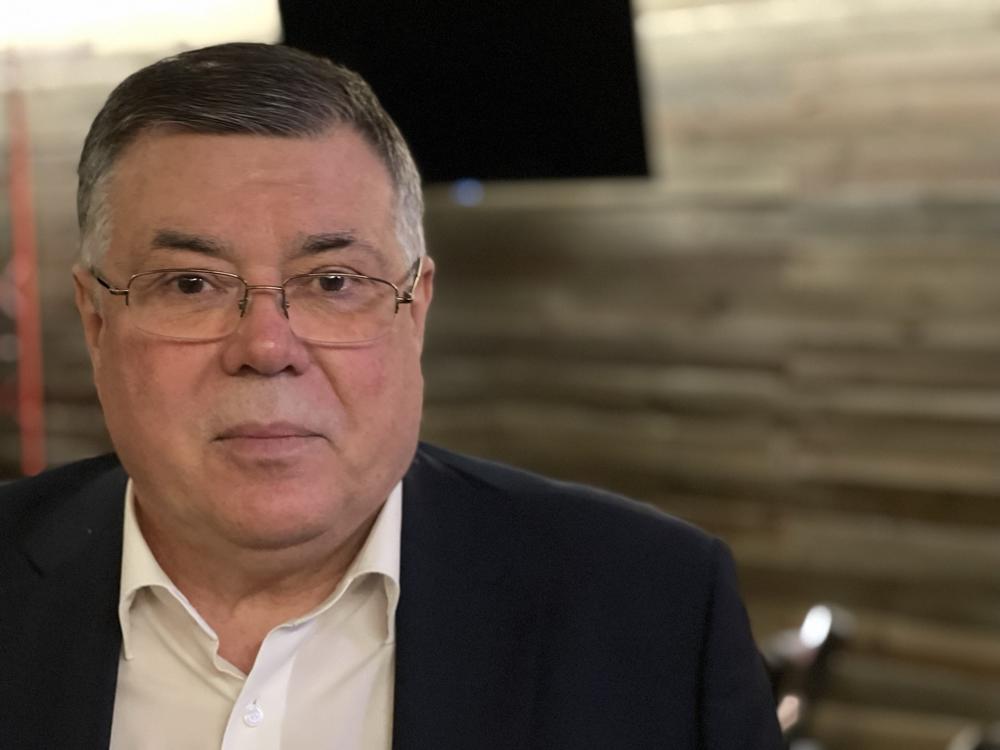Loading...
Section Branding
Header Content
With war next door, Moldova faces a dilemma as Eastern Europe's most vulnerable state
Primary Content
CHISINAU, Moldova — Ion Manole, a human rights lawyer here, received a phone call before dawn on Feb. 24 from a colleague who told him to open his window so he could hear the sound of Russian missiles exploding in the distance.
At first, Manole thought Russian troops were attacking this small, Eastern European country, which is wedged between Ukraine and Romania. Manole, who runs Promo-LEX, a human rights organization, has won dozens of cases against Russia over abuses in Trans-Dniester, a separatist region of Moldova that is home to about 1,500 Russian troops.
Manole feared that if Russian soldiers came to Chisinau, they'd detain him.
"Everybody was scared," he says, referring to people in the Moldovan capital. "We prepared our luggage to be able to leave."
In fact, the explosions that morning came from the other side of the border in Ukraine. But the war next door has only emphasized Moldova's precarious position as Eastern Europe's most vulnerable, front-line state. It has also sparked a national conversation about how one of Europe's poorest countries can protect itself in what has become a very dangerous neighborhood.
Moldova is an agricultural nation of vineyards, wheat fields and forests with a per capita gross domestic product of about $4,500, just below that of Guatemala, according to the World Bank.
When Russian troops invaded Ukraine in late February, many here feared they might continue into Moldova and push to turn it into a pro-Moscow buffer state between an expanded Russia and NATO. Former Moldovan officials cite President Vladimir Putin's attitude toward former Soviet republics like this one.
"Putin's global ambition is to rebuild, in some shape or form, the Soviet Union," says Alexandru Flenchea, who served as deputy prime minister for reintegrating Trans-Dniester (also commonly known as Transnistria) into the rest of the country.
Flenchea says the Russian leader sees a nation such as Moldova — or Ukraine, for that matter — as not really legitimate: "A country that accidentally became a country because of what he called the greatest geopolitical catastrophe in history: the collapse of the Soviet Union. To Putin, countries like Moldova and the Baltic states and even Poland — they are not nations that have a right to be sovereign countries."
After Russia invaded Ukraine, the Moldovan government condemned the attack. Last month, Moldova, Ukraine and fellow former Soviet republic Georgia all applied to join the European Union.
Moldova's neutrality is coming into question
Moldova, which is geographically just a little larger than Maryland, has sought security through a policy of neutrality, neither siding with Russia nor NATO.
But in the face of the war in Ukraine, Igor Grosu, the speaker of Moldova's parliament, says that policy is no longer enough and his country now needs security guarantees from major powers.
"I think the notion of neutrality in connection to guarantees will be dramatically changed," Grosu says through a translator. "It does not function."
Grosu did not spell out what such security guarantees might look like, but one of the country's former deputy foreign ministers, Iulian Groza, offers some thoughts. Groza, who runs the Institute for European Policies and Reforms, a Chisinau think tank, says Moldova needs to develop a closer relationship with Europe. He says European Union member states and NATO allies can help Moldova. That includes selling weapons to Moldova's military, which has just about 6,000 troops and is not seen as a serious fighting force.
"It's [also] about the chain of everything which is linked to defense capabilities," Groza says, "medical infrastructure, training, equipment ... professionalizing our army."
Once part of Romania, some Moldovans want to reunify
At various points, Moldova has been a part the Russian Empire, the Soviet Union and Romania. Moldova declared independence in 1991 when the Soviet Union broke apart. Some Moldovans say the country may be too small to survive on its own and the solution is to reunify with neighboring Romania, with which it shares a common language. Romania is also a member of the EU and NATO.
"This might be, from my point of view, the best choice," Iurie Renita, who served as Moldova's ambassador to NATO, says of reunification. "You are immediately joining the EU, but most importantly ... you are under the NATO umbrella."
But reunification faces big hurdles. Although support has been growing over the past five years, only about 44% of Moldovans support it, according to a recent poll. Of course, Russia would certainly object if Moldova tried to use reunification with Romania as a backdoor route into NATO.
A third option for Moldova is to remain neutral and try not to provoke Russia.
Ion Chicu, who served as Moldova's prime minister from 2019 to 2020, says the country doesn't need to buy weapons and any attempt to join NATO would be unwise. After all, Putin cited Ukraine's intent to join the military alliance as one reason for Russia's attack.
Chicu also says it's naive to think other nations will come to the aid of a small country like Moldova. Its population is about 3 million, according to the news analysis website Balkan Insight, plus perhaps another million or more working outside its borders. Chicu says a country this size doesn't really rate in what he describes as a power struggle between Russia and the United States.
"Let's put it bluntly," says Chicu, "nobody will protect us."
"Ukraine became a battlefield between two large geopolitical powers. That's the reality. It is exactly what happened back in ... Korea, Vietnam or Syria."
Russian troops are stationed on territory that claims independence from Moldova
When it comes to Russia, Moldova has a number of worries. In addition to the estimated 1,500 Russian troops in Trans-Dniester, there are also at least 8,000 Transnistrian troops in the breakaway region, which shares a 250-mile-long border with Ukraine.
The territory moved to separate from Moldova in the early 1990s amid the collapse of the Soviet Union. Trans-Dniester, which was loyal to the USSR, fought a short war with Moldovan troops. Russian soldiers intervened on the Transnistrian side. The fighting forces reached a cease-fire in 1992, and Trans-Dniester declared itself a republic, though it remains internationally unrecognized. Last month, the Council of Europe described Trans-Dniester as Russian-occupied territory.
Trans-Dniester has strategic value for Russia. For instance, Putin could use Moldova's energy dependency on Russia and Trans-Dniester to exert pressure on the country's pro-Western government.
"We get about 75% of our electrical energy coming from a Transnistria-Russia-owned energy plant," says Andrei Popov, an official with Moldova's Foreign Ministry. "This gives Russia very strong leverage, and should this be interrupted, we'll be in a very difficult situation."
Moldova, which is landlocked, also relies on Russia for 100% of its natural gas. Sergiu Tofilat, an energy analyst, says that must change.
"We need to convince our society, which is very divided among pro-Russians and pro-Europeans, that relying on Russian gas — this is not normal," says Tofilat. "It's like funding the Russian army who kills Ukrainians, which fight for our independence."
Tofilat says developing new energy suppliers won't be easy given the high costs these days. It's especially hard for Moldova, given its small economy, but Tofilat says it's a price his country must pay for its own security.
NPR London producer Jessica Beck contributed to this story.
Copyright 2022 NPR. To see more, visit https://www.npr.org.






